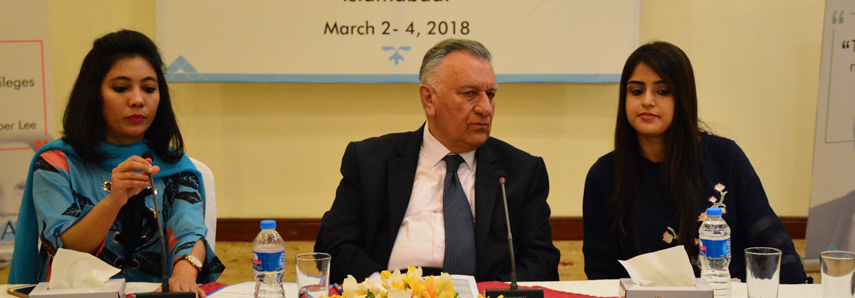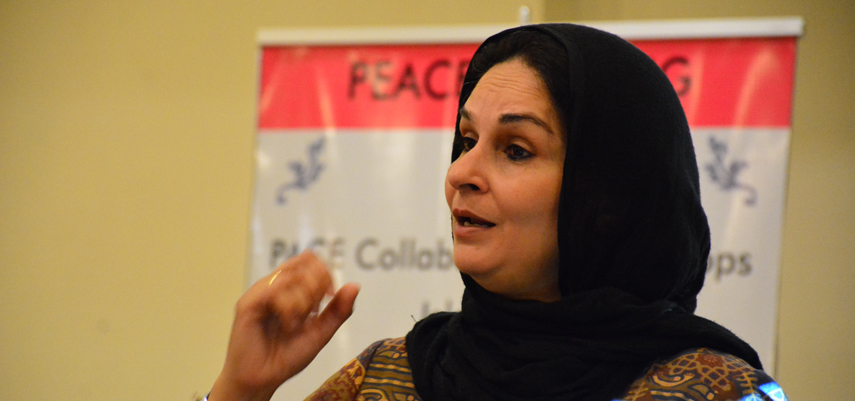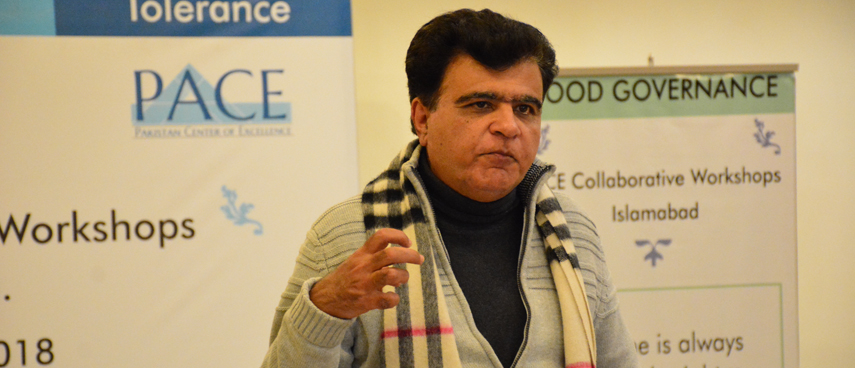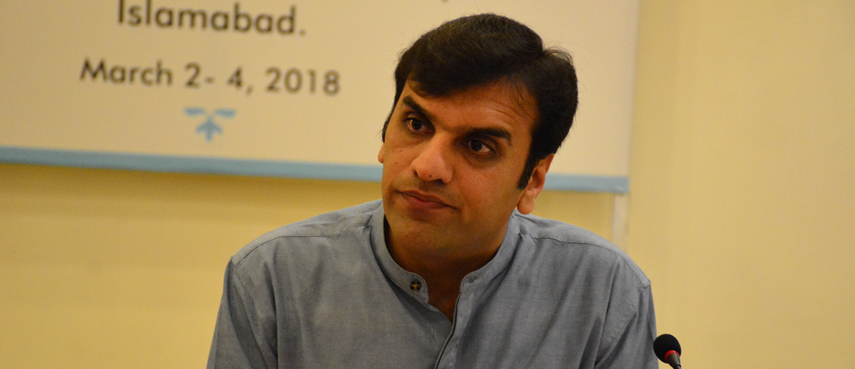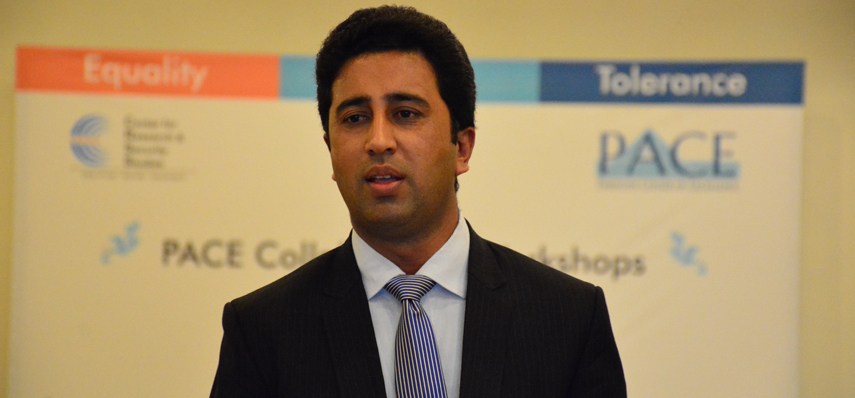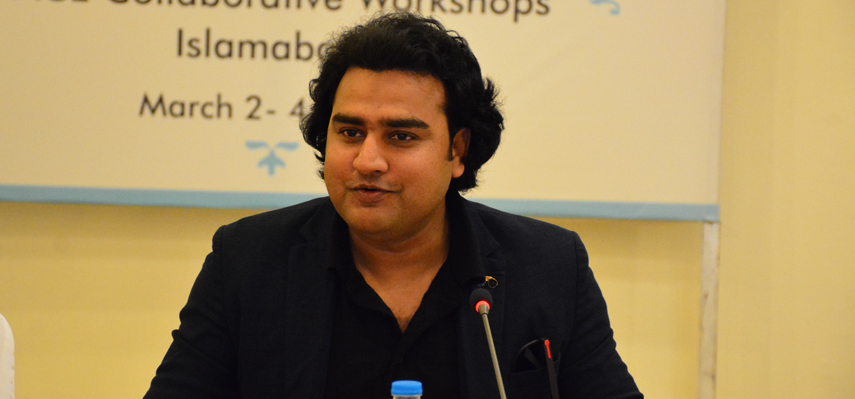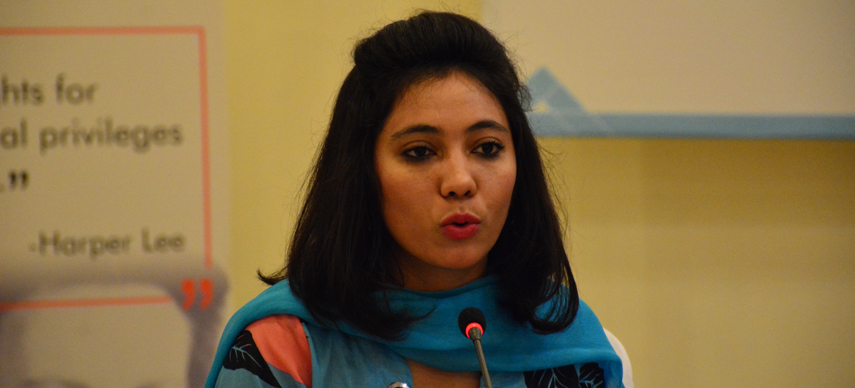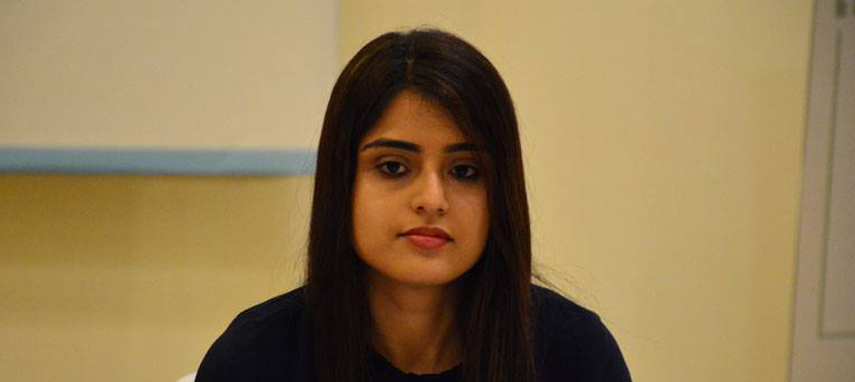The Center for Research and Security Studies (CRSS) conducted the 27th three-day PACE Collaborative workshop for young university lecturers and professors from March 2-4, 2018, at Hill View Hotel, Islamabad. The workshop was conducted under the umbrella of the Pakistan Center of Excellence (PACE), a counter-radicalization, pluralistic values focused project, in collaboration with the Dutch Government. Participants included young university lecturers and professors from all across Pakistan including Sindh, Balochistan, Punjab, KP, AJK, and FATA .
OPENING
Ambassador Qazi Humayun was the chief gust of the opening session and started the discussion on the topic of multiculturalism and pluralism with reference to his working experience in various countries of the world. He said that there is a lot of diversity in the world. There are people from rural and urban communities with different cultures and ethnicity. People are different, cultures are different but all this combines and gets projected as strength of a nation. Similarities and differences both strengthen you. Pakistan also has different ethnicity with different cultures and outlook in life. Different people in these regions think different way and all these things shape up your personality and thinking. In every country, people belong to different classes and not every state is a welfare state. Only welfare states have a greater consideration for the dispossessed. The concept of diversity and multiculturalism bind together the nations. Tolerance is the key to pluralism. Be courteous and nice to the people. Every human being has a right to living and we don’t have a right to take away this rights from them.
Ms. Humaira Masihuddin: Multiculturalism and Pluralism with Reference to Islam
Ms. Humaira Masihuddin kicked off her session speaking on the theme of ‘Pluralism and Multiculturalism with Reference to Islam’. She said that human beings belong to one origin and one place, and no purely homogeneous society exists in the modern world. Most societies consist of different ethnic groups. She defined minorities as a group of people who are singled out from the other groups and are treated differently because of their physical or cultural characteristics. “Minority is a subordinate group as opposed to the dominant group. The concept of multiculturalism revolves around a society with heterogeneous beliefs and set of ideas. Multiculturalism makes a society diverse. Respect for diversity shapes coexistence, peace, and harmony under a political and institutional framework. Differences are not challenges and do not impose any limitation on growth of an individual or society. Every individual has a right to be different and be respected by all. In Islam, the concept of diversity is clearly inclusive,” she continued. In the Quran, she said that humans are addressed to treat one another without any discrimination and respect each other’s beliefs and should never use abusive language or show disrespect towards others. If we look at the character of the Holy Prophet (PBUH), it is evident how He always respected the non-Muslims in Mekkah and Medina. Even on the day Mekkah was conquered by Muslims, Prophet (PBUH) forgave all His enemies for the harms that they had inflicted on Him. Ms. Humaira also made note of the last sermon of the Holy Prophet that said “All mankind is from Adam and Eve, an Arab has no superiority over a non-Arab nor a non-Arab has any superiority over an Arab; also a white has no superiority over black nor a black has any superiority over white except by piety (taqwa) and good action”. In short, Islam is the religion of tolerance and coexistence, love and peace for others regardless of their religion or ethnicity.
Dr. Niaz Murtaza: Fundamentals of Democracy, Governance and Accountability
Mr. Niaz Murtaza shared his views on the concept of democracy and good governance. He said that any institution at its initial stage is never stable, and the same is the case with democracy. But once it is stable and mature, democracy starts delivering. “When we look back at the history of Pakistani politics, Pakistan has never been stable,” he added, “It could never see the fruits of stable and mature democracy. Political scientists state that from stable institutions emerge egalitarian societies. Egalitarian societies are the ones where people have equal access to education, capital, opportunities and freedoms. In such societies, strong institutions, able leadership and good governance emerge and development takes place.”
Mr. Ammad Khaliq: Media and Ethics
Mr. Ammad Khalique kicked off his session on “Media & Ethics”. He started with the definition of “Media” and “Ethics”, media is the collective communication outlet or tool that is used to store and deliver information or data. Specialized mass media channels include print media, social/digital media, photography, advertising, cinema, and broadcasting (Radio, TV). Speaking on the freedom of expression, he referred to Article 19 of the UN Charter, “Everyone has the right to freedom of opinion and expression; this right includes freedom to hold opinions without interference and to seek, receive and impart information and ideas through any media and regardless of frontiers.”
He defined ethics as the way people behave based on their beliefs about what is right and wrong and how it influences their behaviors and values. He shared his views on ethics in journalism with following points:
- Seek truth and report it
- Minimize harm
- Act independently
- Maintain standards of decency
- Be accountable
He also said that being neutral and presenting authentic news is one of the values that should be kept in mind while reporting certain issues. Media is bound in some cases and cannot be open and expose the facts. He said that words are sometimes misinterpreted and other times twisted when reporting sensitive issues; therefore, extreme care should be taken while debating on such issues. He stressed that the reporters while broadcasting should use decent language.He shared few laws and ethics that are binding upon media:
- Cyber Stalking
- Cyber Bullying
- Cyber Masking
- Cyber Frauds
- Hate Speech
- Defamation
- Intrusion to Privacy
- Harassment
- Cyber Crime Bill 2016
- Cyber Wing (FIA)
Dr. Akhlaq Awan: Tolerance and Our Culture
Dr. Akhlaq Awan started the discussion on the topic of “Tolerance and Our Culture”. He stimulated the discussion by shedding light on how people differentiate and discriminate on the basis of dress, language, living habits, customs, beliefs, traditions, and festivals. He further discussed that Pakistani society is divided on the grounds of religion, culture, language, patriarchy, and literature. He also discussed the reasons which are leading to intolerance in Pakistan as follow:
- Extremism
- Class System
- Different education system
- Un equal Unemployment opportunities
- Caste System
Dr. Tauqeer Hussain: National Security and Elements of Integrity for a Nation
Dr. Tauqeer Hussain was first speaker of the day and kicked off his session on the topic of “National Security and Elements of Integrity for a Nation.” He described few elements for the integrity of an individual as follow:
- Honesty
- Not corrupt
- Truthful
- Competent and resourceful (not dependent on others)
- Believes on merit rather nepotism
- No criminal record
- Respect for all regardless of Politico-religious identity
- Believes on ‘dignity of humanity’
- Holds no gender discrimination
- Diminishes all Ethnic and sectarian elements of distinction in his/ her life
- Even good health and education also falls in the integrity of an individual, which are important ingredients to build confidence, mental effectiveness, and physical fitness.
He linked the above mentioned characteristics to the Article 62 and 63 of the Constitution of Pakistan. According to him, these characteristics define a person’s character and personality. After having a detailed session on operationalization of the elements of integrity, Mr. Hussain charted a few elements of integrity for a nation which were agreed upon by the participants as well. These elements are as under:
- health insurance
- free education
- adequate housing facility
- employment opportunities for all
- social cohesion
- entertainment facilities
- community engagement programs
- State allowances
- innovation
- research and development
- science and technology
- strong institutions
- strong military
- strong economy
- stable political system
- security for all
- justice for all
- public transportation
- secularism
- freedom of speech and work
- liberty
- pursuit of happiness
- equal citizenship
- provision of social and political rights
- free and fair elections
- good governance
- absence of nepotism and corruption
- absence of violence
- absence of fundamentalism, extremism, and terrorism
- democratization rather personalization
- Sense of constitutionalism rather nationalism, etc.
CLOSING
Ms. Farhana Kanwal, Project Coordinator, PACE, in her concluding remarks, insisted that there is a dire need to revisit the widespread preconceived notions that have been passed through cultural values in the society over generations. Teachers, with the responsibility of imparting values to the young generation in educational institutions, are the most valuable engines that can challenge common negative narratives that promote hatred and bigotry. She said that teachers have the ability to shape an entire generation’s mindset to propagate tolerance, diversity and equality.
Ms. Zehra Zaidi, Project Coordinator shared that participants need to conduct these activities with their students to inculcate adherence to the rule of law and equal citizenry. CRSS provides financial and logistic support in this regard to lecturers and professors so that they can foster the universal ideals of tolerance and diversity in the young generations.

